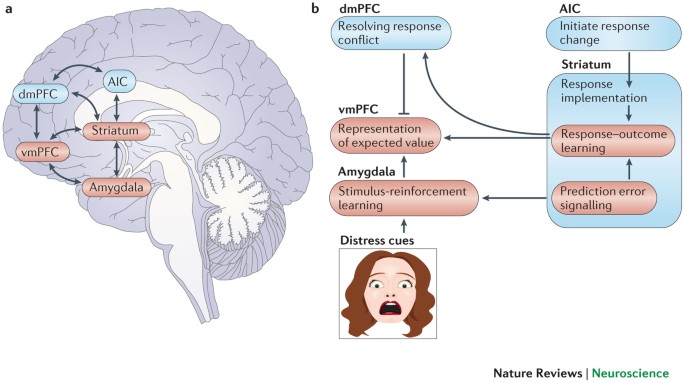Mental health and wellness are vital aspects of overall well-being, yet they are often overlooked or misunderstood. In Utah, a state known for its breathtaking landscapes and vibrant communities, the need for quality mental health care is as essential as in any other region. Whether you’re dealing with stress, anxiety, depression, or seeking personal growth, understanding the various therapy options available in Utah can make a significant difference in your life. This comprehensive guide explores the different types of therapy available, how to choose the right therapist, the benefits of therapy, and what to expect from the process.
1. Understanding Therapy in Utah
What is Therapy?
Therapy, also known as psychotherapy or counseling, is a collaborative process where a trained professional helps individuals, couples, or families understand and resolve issues affecting their mental health. Therapy can address a wide range of concerns, including mental illnesses, emotional difficulties, and life challenges.
Why Therapy is Important
Mental health is just as important as physical health. Therapy provides a safe space to explore thoughts, feelings, and behaviors, leading to improved emotional well-being and personal growth. In Utah, where the population is diverse and dynamic, therapy can be tailored to meet the unique needs of each individual.
2. Types of Therapy Available in Utah
Cognitive Behavioral Therapy (CBT)
Cognitive Behavioral Therapy (CBT) is one of the most widely used therapeutic approaches. It focuses on identifying and changing negative thought patterns and behaviors. CBT is effective in treating anxiety, depression, phobias, and other mental health conditions.
Dialectical Behavior Therapy (DBT)
Dialectical Behavior Therapy (DBT) is a specialized form of CBT that emphasizes mindfulness, emotional regulation, distress tolerance, and interpersonal effectiveness. It is particularly useful for individuals with borderline personality disorder, self-harm behaviors, and chronic emotional instability.
Family Therapy
Family therapy involves working with families to improve communication, resolve conflicts, and strengthen relationships. This type of therapy is beneficial when family dynamics contribute to a person’s mental health issues or when a family member struggles with mental illness.
Couples Therapy
Couples therapy helps partners in a relationship address issues such as communication problems, sexual difficulties, infidelity, and more. It provides a neutral ground for both partners to express their concerns and work towards a healthier relationship.
Group Therapy
Group therapy involves one or more therapists working with several individuals at the same time. This type of therapy offers a supportive environment where participants can share experiences, learn from others, and build social skills. Also Read Here: Understanding the Mind of a Compulsive Liar
Play Therapy
Play therapy is a therapeutic approach primarily used with children. Through play, children can express their feelings and thoughts in a non-verbal way. This type of therapy helps children with trauma, anxiety, behavioral issues, and other emotional difficulties.
3. Choosing the Right Therapist in Utah
What to Look for in a Therapist
Choosing the right therapist is crucial for effective treatment. Consider the therapist’s qualifications, experience, and areas of specialization. It’s also important to find someone with whom you feel comfortable and who respects your cultural, religious, or personal values.
Licensing and Credentials
In Utah, therapists must be licensed by the state to practice. Common licenses include Licensed Clinical Social Worker (LCSW), Licensed Marriage and Family Therapist (LMFT), Licensed Professional Counselor (LPC), and Licensed Psychologist. Ensure your therapist has the appropriate credentials.
Specializations
Different therapists specialize in various areas such as trauma, addiction, eating disorders, or adolescent therapy. Matching your needs with the therapist’s expertise can lead to more successful outcomes.
Therapist-Client Relationship
The relationship between a therapist and a client is foundational to the therapy process. Trust, confidentiality, and mutual respect are key elements that contribute to the success of therapy.
4. The Benefits of Therapy in Utah
Emotional Well-being
Therapy helps individuals manage and overcome mental health challenges, leading to improved emotional well-being. Whether dealing with depression, anxiety, or grief, therapy provides the tools needed to navigate life’s difficulties.
Personal Growth
Therapy isn’t just for those in crisis; it’s also a valuable tool for personal growth. Through therapy, individuals can gain insight into their behaviors, improve self-awareness, and develop healthier coping strategies.
Strengthened Relationships
Therapy can enhance communication, resolve conflicts, and strengthen relationships with loved ones. Whether it’s couples therapy, family therapy, or individual therapy focused on relationship issues, the benefits extend beyond the therapy room.
Stress Management
In today’s fast-paced world, stress is a common experience. Therapy provides techniques and strategies for managing stress, improving overall quality of life.
5. What to Expect from Therapy
The First Session
The first therapy session is typically an assessment where the therapist gathers information about your history, current situation, and goals for therapy. It’s an opportunity to ask questions and determine if the therapist is the right fit for you.
Setting Goals
During therapy, you and your therapist will set specific, achievable goals. These goals will guide the therapy process and help measure progress.
Therapy Sessions
Therapy sessions usually last 50 to 60 minutes and are held weekly, bi-weekly, or monthly, depending on your needs. The frequency of sessions can change over time as you make progress.
Homework and Practice
Therapy often involves homework or practice outside of sessions. This might include journaling, practicing relaxation techniques, or implementing strategies discussed in therapy.
Measuring Progress
Progress in therapy is subjective and varies from person to person. Regularly reviewing your goals with your therapist can help you see how far you’ve come and adjust the therapy process if needed.
6. Overcoming Stigma and Barriers to Therapy in Utah
Addressing the Stigma
Despite growing awareness, there is still stigma associated with seeking therapy, particularly in conservative communities. It’s essential to recognize that seeking help is a sign of strength, not weakness.
Access to Therapy in Rural Areas
In rural areas of Utah, access to therapy can be limited. Teletherapy (online therapy) has become a valuable resource, allowing individuals in remote locations to receive the help they need.
Insurance and Payment Options
Understanding your insurance coverage for therapy is important. Many therapists in Utah accept insurance, and there are also options for sliding scale fees based on income. Financial barriers should not prevent anyone from seeking help.
7. Finding Therapy in Utah: Resources and Support
Mental Health Organizations
Numerous organizations in Utah offer resources and support for mental health. These include the Utah Department of Human Services, National Alliance on Mental Illness (NAMI) Utah, and the Utah State Hospital.
Online Directories
Online directories such as Psychology Today, TherapyDen, and GoodTherapy allow you to search for therapists in Utah based on location, specialization, and other criteria.
Community Support Groups
Support groups provide a sense of community and shared experience. Many organizations in Utah offer support groups for various mental health issues, including anxiety, depression, and addiction.
Teletherapy Options
Teletherapy has become increasingly popular, offering flexibility and convenience. Many Utah therapists provide online sessions, making therapy accessible to those with busy schedules or in remote areas.
8. The Future of Therapy in Utah
Growing Awareness and Acceptance
As awareness of mental health issues grows, more people in Utah are seeking therapy. This shift towards acceptance is helping to break down barriers and encourage individuals to prioritize their mental well-being.
Innovative Approaches
The field of therapy is continually evolving, with new approaches and technologies being developed. From virtual reality therapy to mindfulness-based techniques, the future of therapy in Utah looks promising.
Community Involvement
Communities in Utah are increasingly recognizing the importance of mental health. Schools, workplaces, and local organizations are becoming more involved in promoting mental wellness and providing resources for those in need.
Conclusion
Therapy in Utah offers a wide range of options to support mental health and well-being. Whether you’re seeking help for a specific issue or looking to improve your overall quality of life, therapy can provide the tools and guidance you need. By understanding the different types of therapy, how to choose the right therapist, and what to expect from the process, you can take the first step towards a healthier, happier life. Remember, therapy is a journey, and it’s okay to seek help along the way.













